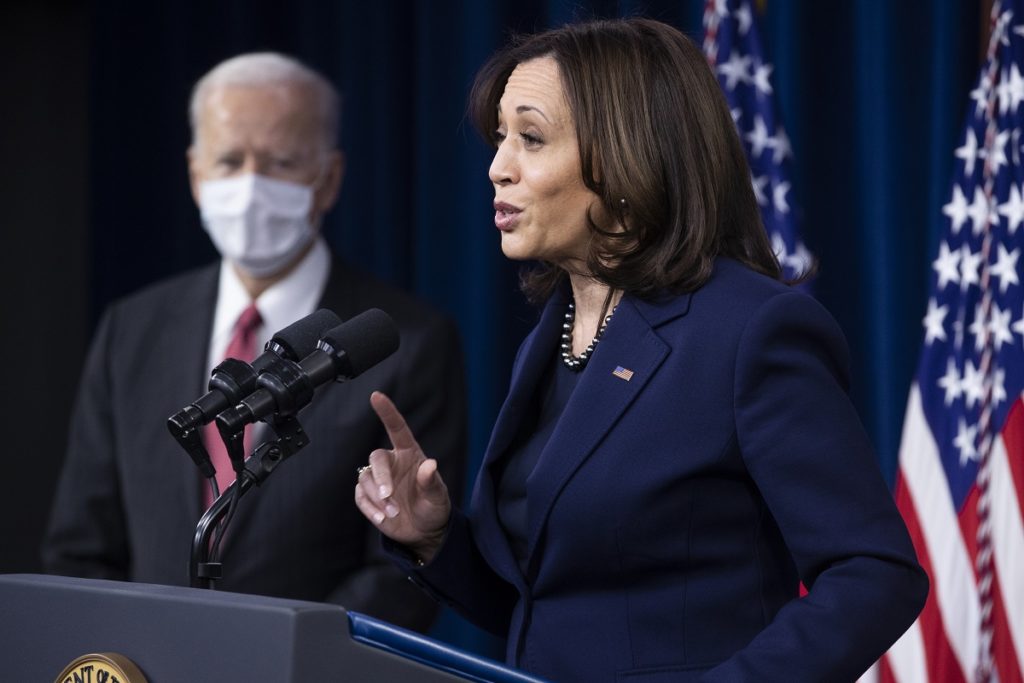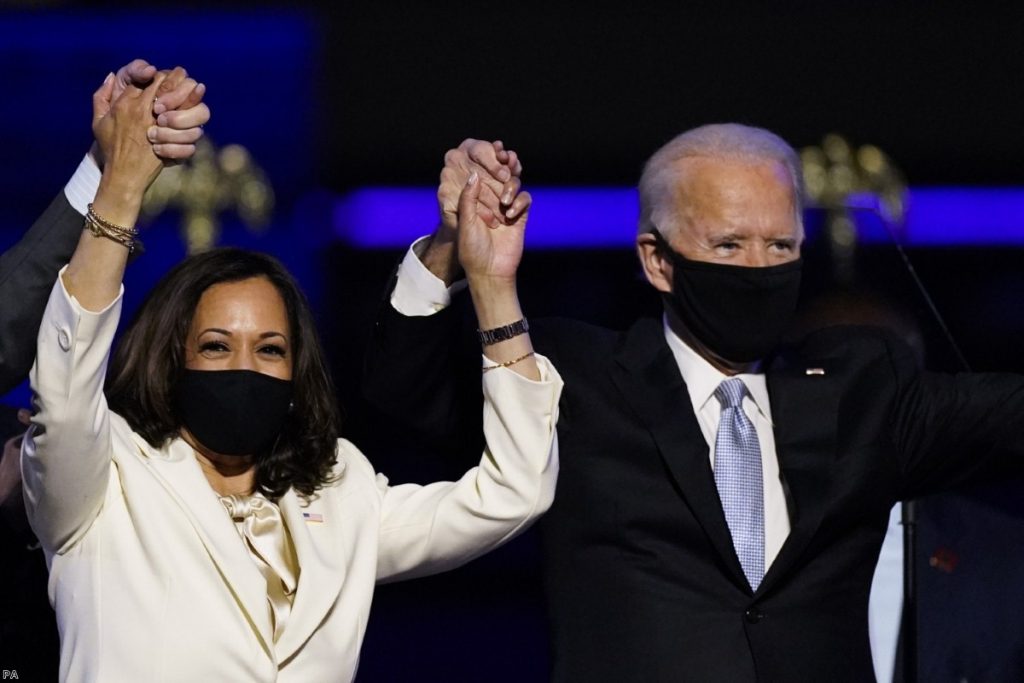The ascension of Kamala Harris to America’s vice presidency has reignited the debate over how mixed-race identities are perceived in the 21st-century. Similar to debates around other prominent mixed-race politicians and public figures like Barack Obama and Meghan Markle, this is not really about these individuals’ personal identity; it is about which racial group can claim them as one of their own.
This matters to people because of the informal, yet very real racial hierarchy that permeates life in our modern world. It is about group prestige, something particularly important to groups that feel denied it due to their assigned spot on a hierarchy positioning white people at the top, black people at the bottom, and others somewhere in-between.
This is why it was important to many black people in particular that Obama, who attained historical levels of global prestige and power for someone of black ancestry, be viewed as ‘black’ rather than mixed-race. It is why some South Asians have expressed frustration at what they perceive as a downplaying of Kamala Harris’ Indian heritage in favour of her black roots. It is why despite explicitly identifying herself as biracial and arguably white-passing, Markle is often hailed as a ‘black princess’ by black Britons. The identity label attached to these individuals wouldn’t matter to the public if not for the existing racial hierarchy. The implications of this hierarchy loomed large in the lives of the mixed-race individuals I interviewed for my new book Biracial Britain.
Daniela, the daughter of a white English father and Afro-Colombian mother told me her mum and extended black Colombian family had little patience for her musings about the challenges of being mixed-race. ‘Because of the colourism in Latin America and the fact I’m so light-skinned, as far as she and her family are concerned, I basically won life’s lottery, so what could I possibly have to complain about?’ As the son of a Nigerian father and Polish mother who grew up in Nigeria, I found her Colombian family’s response all too familiar. In Africa, being seen as close to whiteness is also interpreted as making you one of the lucky ones.


While intellectuals and other people of colour in the western diaspora are understandably incensed at colourism, regular folk in the poorer global south, focussed on surviving the world not changing it, often have a painfully pragmatic approach to the issue. White people sitting atop the hierarchy, in fact, seems to make instinctive sense to them. Not because of modern-day white brainwashing, but because they are focussed on the economic realities of this world in a way those of us living in the wealthy West are not.

The ascension of Kamala Harris to America’s vice presidency has reignited the debate over how mixed-race identities are perceived in the 21st-century (photo: Press Association).
People like myself and I daresay most other black and brown people in the West don’t have to live on less than $1.90 a day like 413 million Africans do, a number unfortunately expected to rise thanks to the economic fallout from the covid pandemic. We don’t live in countries with 50% or higher unemployment rates and we don’t have to worry we may die of an easily curable disease because we don’t have access to 21st-century healthcare.
Being able to focus on the ideational is a luxury, most of the world is preoccupied with the material. The racial hierarchy placing whites atop was created by ideology, but it is sustained by economics. It is no coincidence the current racial hierarchy faithfully reflects the global economic hierarchy, one where white-majority nations remain the wealthiest and black nations the poorest, with the rest of the world somewhere in between.
The combined GDP of 1.2 billion-strong Africa, where 90% of black people live, is smaller than that of 66 million-strong Britain. Despite the rise of the likes of China, India, and the earlier success of Japan, 6 of the 10 largest economies in the world today are white-majority nations. And when it comes to per capita wealth, which is key for the standard of living of individual citizens, 17 of the top 20 nations are white-majority societies.
Yes, the current economic status quo was arrived at often brutally and almost always unfairly. But irrespective how many times we recall the history of slavery, colonialism and Western imperialism, that won’t change the material realities on the ground. Moral arguments won’t reduce poverty levels in Africa or South Asia. They won’t affect the gargantuan wealth and consequent power gap that is the most influential factor shaping global racial dynamics today.
On the one hand, this gap breeds a sadly all-too-human contempt and sense of superiority among the wealthier groups towards the poorer ones. White Europeans regularly see on their TV screens large numbers of black and brown people risking their lives trying to cross the Mediterranean Sea, desperate to get into Europe in search of a better life. The general direction of migration is unsurprisingly from the poorer global South to the rich North – 8 of the top 10 destination countries are white-majority nations. It’s not too difficult to imagine that for the average white Westerner, this is clear evidence of how much better their societies are than others. They want to come and live here, rarely the other way around.
Meanwhile, citizens of the global South are likely to look up to the white world as the world of wealth and development, with nice infrastructure, modern technology, welfare systems and all the other benefits of modernity only money can buy. This can tend to foster in them a lesser than syndrome. But what can we realistically expect in a capitalist world where money is the baseline requirement to improving people’s everyday lives?
And so I argue in Biracial Britain that colourism will not be eliminated by well-meaning intellectuals telling people it is a bad thing; it will be eliminated when the white world stops being so much richer and more successful than everyone else. Only then will regular black and brown folk stop looking up to white people so much and start admiring their own kind. Conversely, white people will have no further plausible premises on which to build a superiority complex.
Nations like Japan, China and India increasingly are showing the way forward. The rest of the global South must follow suit. The road to the end of white supremacy lies in economics, not sociology, history or semantics. When a more even economic balance is created between the racial groups, the racial hierarchy will flatten. And then no one will care whether Kamala Harris identifies as black, South Asian, or simply as Kamala Harris.

